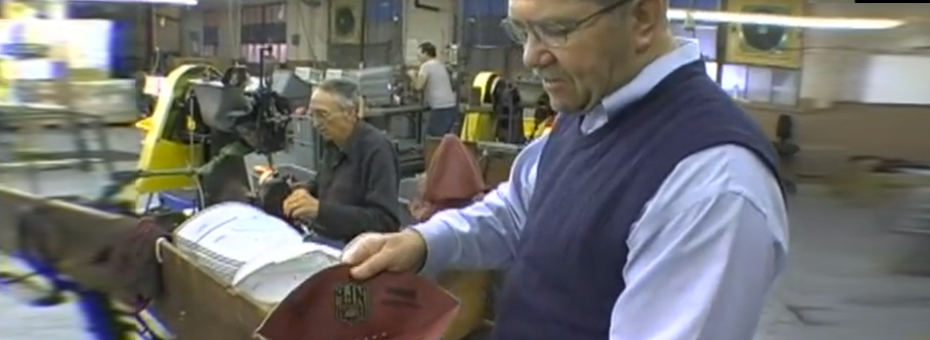This NFL season is over, but my thoughts of football are not.
I’ve let go of the fact that the New England Patriots are celebrating their 4th Super Bowl win while my much-loved Steelers didn’t make it past the Wild Card round of the playoffs. And now my thoughts are focused on how footballs are made. That is a contact sport!
I have to admit I’ve only seen video (and my own replays) of the manufacturing processes involved, but I really want to have a go at making the work more people friendly.
Not everyone would have the same response. It’s pretty amazing to watch as they: cut the leather, stamp the logo, split the leather, sew the ball together, turn the “carcass” inside out, insert a “bladder”, lace the strings, add air pressure, measure/weigh/inspect the finished footballs – all before packing and shipping them out for backyard and ball field battles.
It isn’t what football manufacturers do that bothers me, it’s how they do it. There is a concept called muri, which means physical and/or mental overburden for the employee who actually does the value-adding work (in this case, making the football). From videos I watched of ball after ball being made, the manufacturing process appears to be FULL of muri. Check out this video below, for example. Here, the tour guide refers to the process of turning the football inside out as the most stressful in the plant. By all accounts Wilson makes a high quality product, but this is a perfect example of muri and how difficult it can be to improve.
I’m not so comfortable judging from the sidelines on this one. It’s not for me to challenge the production process; ideally, it’s for employees and shop floor management to ask for a “better way.” It’s their job to share their ideas for improving the work. And for all I know, some of this process improvement work has already been done.
As an avid football fan, I appreciate the work they do. But as a person who improves manufacturing processes and systems, I’d love to help the manufacturing team make it less of a contact sport on their end. There are a lot of possibilities. What muri jumps out to you?
Anybody interested in a game of muri vs. process improvement?





